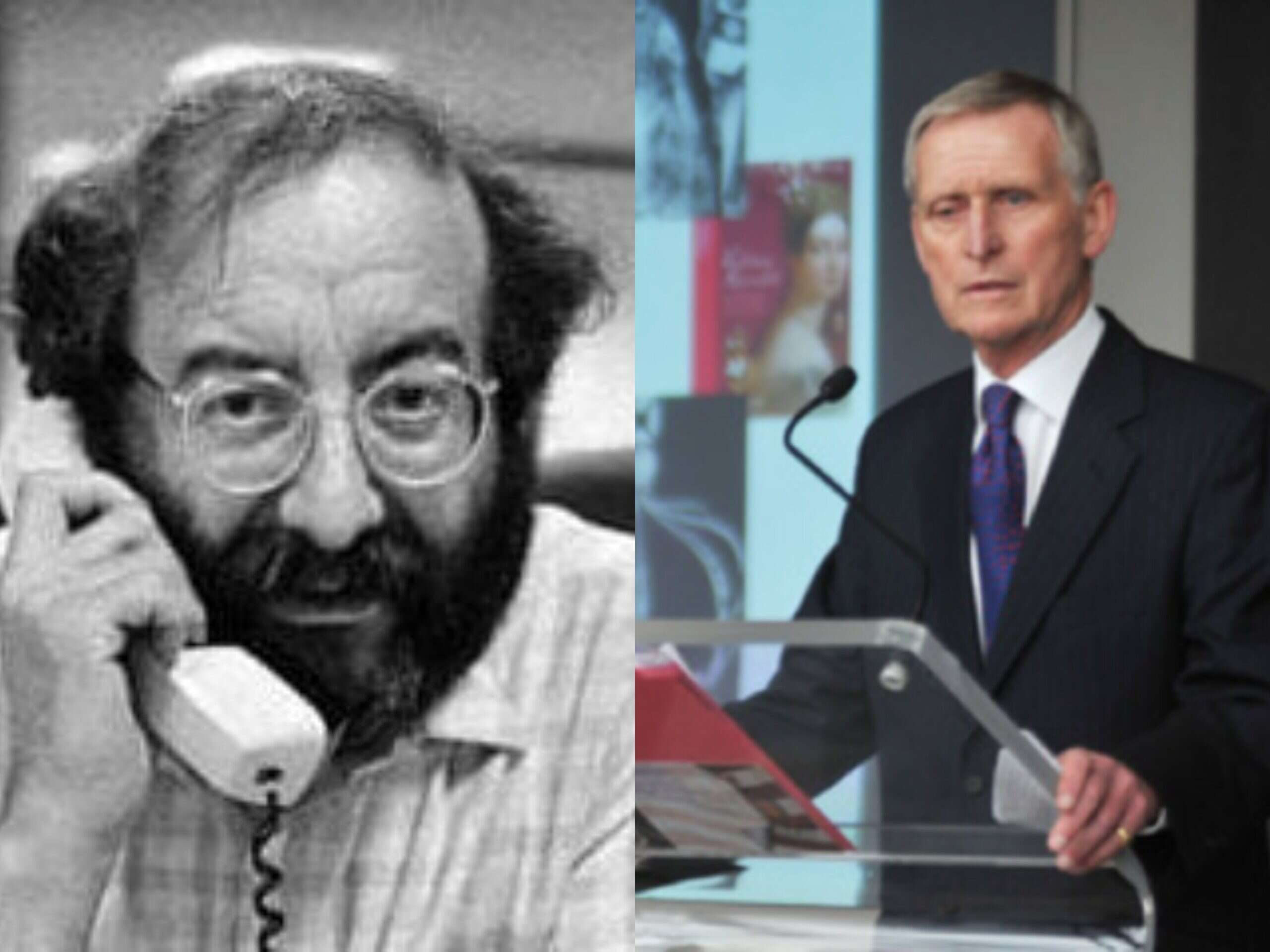
With the official UK coronavirus death now well past 100,000, we remember the names of those journalists – both current and former – who have died from the virus.
At least 23 UK journalists have died of coronavirus, including the founding executive director of the Society of Editors Bob Satchwell and former news agency chief Frank Gilbride.
As key workers, journalists have provided a vital role during the pandemic in keeping the public informed and up-to-date with life-saving information while also holding power to account.
We also remember the independent retailers who died while helping to bring the news to their communities.
If you know of anyone we have missed and should be included in the list below, please email charlotte.tobitt@pressgazette.co.uk and we will aim to add them.
UK journalists who died from Covid-19
Catherine Waring, 48

Former Shropshire Star journalist Catherine Waring. Picture: Linkedin
Waring, who was also battling lupus, started her journalism career as a trainee reporter with the Shrewsbury Chronicle in the early 1990s, later becoming a sub-editor for the Shropshire Star and its weekly sister titles.
She also spent five years at the Hereford Journal and freelanced for a paper in Welshpool.
Shropshire Star editor Martin Wright said: “Catherine was a dedicated and talented journalist who made a big contribution during her time with the Shropshire Star and its associated weekly newspapers.
Andrew Slorance, 49
Former Southern Reporter journalist Slorance was the first head of media relations for the Scottish Parliament in 1999 and worked in government comms ever since, latterly as head of emergency response unit communications.
He had been living with a rare and incurable form of cancer since 2015 and recently went undergone chemotherapy and stem cell treatment to hold off a recurrence.
However he contracted Covid-19 in November and died a month later after developing complications related to the virus.
Scottish First Minister was among those paying tribute, tweeting: “Andrew was a wonderful person and made a difference in all he did. He was a crucial part of our resilience team and central to our fight against Covid this year. We will miss him hugely.”
It is with a broken heart that we say @slorance passed away with COVID-19 on Saturday morning. pic.twitter.com/nD2QjJIYo5
— Louise Slorance (@LouiseSlorance) December 6, 2020
Frank Gilbride, 61
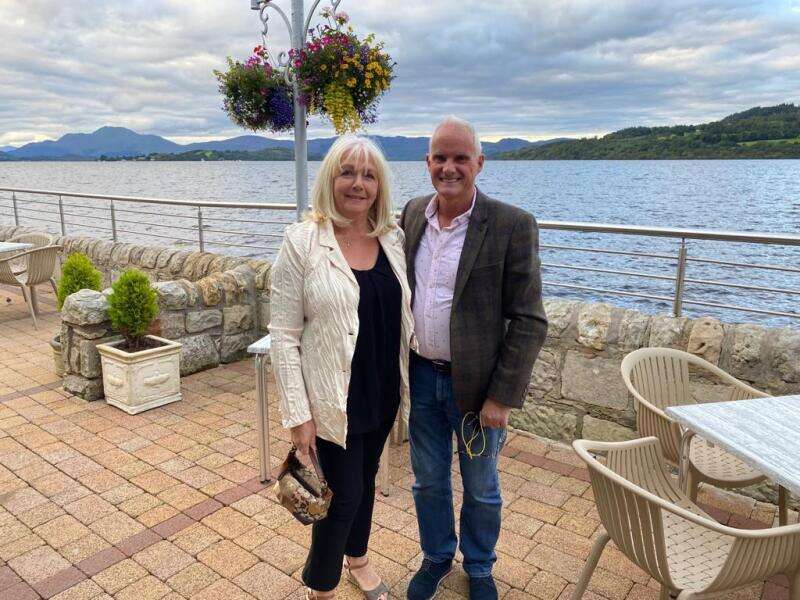 Frank started as a reporter at Welsh news agency Dragon before moving to London to work for national newspapers including The Sun, Evening Standard and Daily Mirror.
Frank started as a reporter at Welsh news agency Dragon before moving to London to work for national newspapers including The Sun, Evening Standard and Daily Mirror.
At The Sun on a late-night freelance shift, he was the first to find out about the Piper Alpha oil rig disaster in 1988 in time for the paper’s late editions, which were the only ones to carry the full extent of the horror.
He later left London to return to his native Scotland in the 1990s where he set up the agencies Press Team and Newsflash. His coverage of the Dunblane massacre of 1996, close to his home, was so comprehensive that his copy was used across the globe.
National Association of Press Agencies executive member, Mark Solomons, said: “Frank had a passion for journalism as well as golf, Scotland and his beloved Celtic. But most of all he was a family man, close to his siblings and father to five fantastic children as well as a great friend.”
Richard Sanders, 62
Sanders worked on BBC Radio 4’s Farming Today for more than a decade from 1988. His cause of death was jointly recorded as coronavirus and bipolar disorder.
Paying tribute on the programme in April, presenter Anna Hill said: “He was a really good journalist and very proud of his work on BSE or Mad Cow Disease.
“He won an award for a programme on the subject. He was never afraid to ask a hard question or hold politicians to account.”
Derek Masterton, 66
Masterton spent 30 years at the Daily Record, ending his journalism career as assistant news editor before becoming a media relations officer for the Red Cross in 2009. He retired just two months before his death in November.
Daily Mirror chief reporter and ex-Record news editor Andy Lines told the paper Masterton “was a brilliant journalist and a Daily Record legend.
“He was a great reporter and if there was something going on in his beloved Ayrshire he knew about it before anyone else.”
Brian Hood, 67
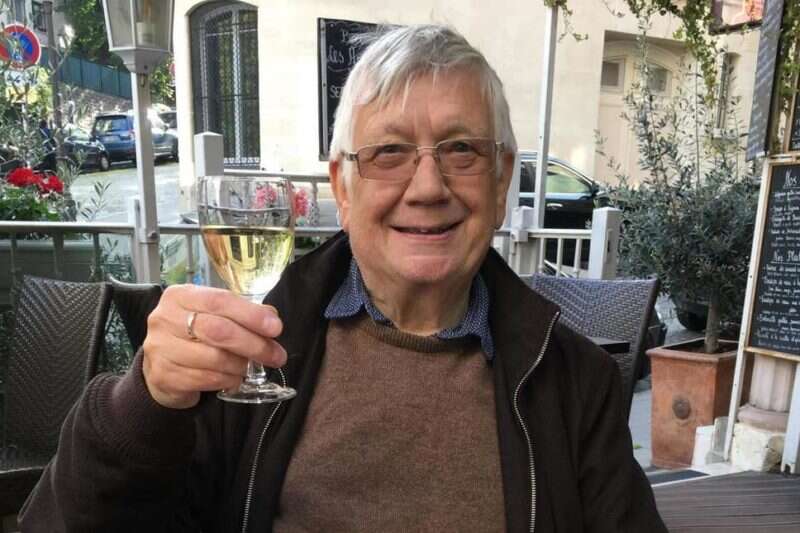
Former Evening Standard journalist Brian Hood. Picture: Evening Standard
Hood spent 25 years with the Evening Standard from 1993 as a sub-editor and production editor on the business pages.
He started his career on the Clitheroe Advertiser and Blackpool Gazette and also spent time in Hong Kong for the South China Morning Post and Wall Street Journal before freelancing for most of Fleet Street.
Standard City editor Jim Armitage described Hood – who had also faced a long-running cancer battle – as a “wonderful, clever man who put up with a lot of mayhem from a chaotic City editor with calm, good grace”.
Gregory Katz, 67
Katz had been a correspondent for the Associated Press in London since 2008 and became acting bureau chief in 2013, recently leading the news agency’s coverage of Brexit and Boris Johnson becoming Prime Minister.
He was part of the Dallas Morning News team that won a Pulitzer Prize for their series on violence against women in 1994, and was the only journalist inside the Dakota Apartments on the night of John Lennon’s murder in 1980.
Ian Phillips, AP’s international news director, said Katz “managed to capture so much about British society in his writing — the nuance, the singularity, the humor, the tradition”.
AP said Katz had been ill in recent months and then contracted Covid-19.
Bridget Rowe, 70
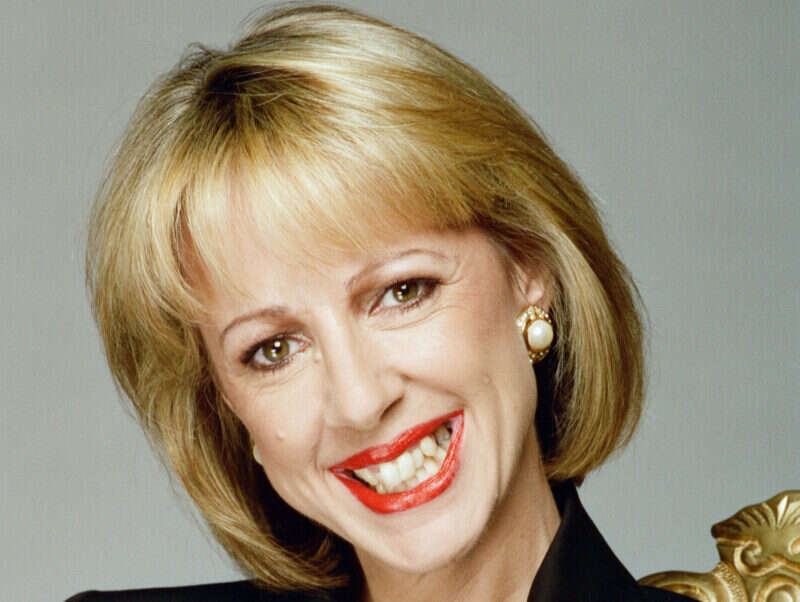
Bridget Rowe, editor of The People, taken on. 1 February 1996. Picture: MirrorPix
Former Sunday Mirror and Sunday People editor Bridget Rowe died in January 2021 aged 70 after catching Covid-19 in hospital.
Rowe was admitted to hospital on Boxing Day after a series of brain seizures and died just over two weeks later.
Rowe started out working on a succession of magazines, including 19, Petticoat, Club, Look Now and Woman’s World, before becoming assistant editor of The Sun, editor of the News of the World’s magazine Sunday, editor of Woman’s Own, and then editor of TV Times.
In 1991 Rowe became editor of the Sunday Mirror, moving to The People (now Sunday People) in 1994 before becoming managing director of both newspapers in 1997 and finally returning to edit the Sunday Mirror for another year.
She then became one of the panelists on the first series of Loose Women in 1999.
Stuart Goodman, 72
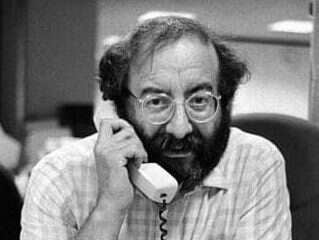
Stuart Goodman
Goodman was a well-loved Fleet Street photographer, working for titles as diverse as the Swansea Evening Post, The Guardian, The Daily Mail and the Independent as a snapper and as a desk man on the Daily Star, Evening News and the Evening Standard where he spent seven years.
He was particularly known for his ability to spot talented young photographers and many of Fleet Street’s finest owe their first break to him.
Former Daily Mail picture editor Harvey Mann said: “He was a nice man, and he would always go the extra mile to get the picture I needed for the paper.”
Bob Satchwell, 73
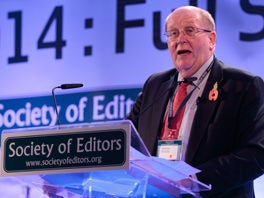
Bob Satchwell speaking at the annual Society of Editors Conference in 2014. Picture: Ian Hinchliffe/Society of Editors
Satchwell founded the Society of Editors in 1999 and remained executive director until he retired due to ill health in 2017.
He edited the Cambridge Evening News for 15 years between 1984 and 1999 and also worked as an assistant editor on the News of the World and a reporter on the Lancashire Evening Post.
Satchwell spent several weeks in hospital after developing pneumonia and Covid-19 and then moved to a hospice where he passed away peacefully a week later, the Society announced on 3 March.
Ian Murray, who succeeded Satchwell as executive director, described him as a “true giant of the industry”. The Society has opened an online book of condolences.
“I know I speak for the board and membership of the Society when I say we have lost one of the media’s greatest champions,” Murray said. “The principles of a free press ran through his veins.
“Bob was one life’s great communicators and this gift made him superbly able to fight his many battles on behalf of the press. From Leveson to the creation of IPSO, from threats to Freedom of Information, to the countless other attempts to stifle free speech, Bob was always there in the fight.
“On a personal level, I had known Bob from the days of the old Guild of Editors. It was his vision that saw the need for a truly national organisation to represent editorial standards and freedoms across the whole media spectrum. We all owe him a huge debt of gratitude.”
[Read full Bob Satchwell obituary and tributes here]
Chris Barrett, 75
Barrett joined his local paper, the Alton Herald in Hampshire, after leaving school before moving to Devon to work on the South Devon Journal in Torquay, where he met his wife.
He spent 19 years at the Daily Echo in Southampton from 1971, starting as chief sub and later becoming deputy editor, before joining ITV News Meridian to become a popular programme producer in the 1990s where he loved to finish bulletins with a happy story.
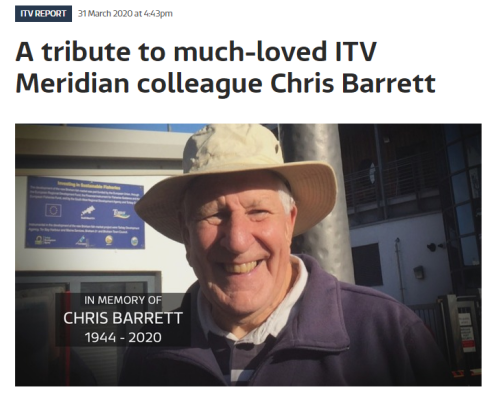
ITV tribute to Chris Barrett
Legendary ITV News Meridian presenter Fred Dinenage said: “Chris Barrett was a very talented producer, but more important than that, he was a dear friend.
“We worked alongside each other for many years when he moved into television after a distinguished career in journalism. He prided himself on being a year younger than me – and always winning our football bets!
“He was also one of the fittest men I ever knew with his epic walks around the West Country. Which is why his untimely death was such a shock. I confess I shed a tear when I heard the news. Friends like Chris are hard to find. I will miss him.”
Dennis Aris, 76
Aris spent more than 20 years at the Westmorland Gazette and wrote the long-running column The Way I See It.
Former editor John Lannaghan told the paper: “Giving Dennis his own column was one of the best things I ever did. He had a quirky sense of humour and used it to wonderful effect, highlighting the absurdities and oddities of everyday life but often with a serious point to make.”
Aris, who battled coronavirus for more than two weeks and showed signs of recovery before succumbing to complications of the disease, also worked for ten years at the North West Evening Mail in Barrow.
He spent his early career at the Beds and Bucks Observer and Honiton Herald and was described as a “first-rate general reporter”.
John Hodge, 77
Hodge, a sub-editor with North Wales Newspapers for 35 years until his retirement in 2008, suffered with cancer for 12 years and then died after contracting Covid-19.
His son Richard told The Leader he fought cancer “like a trooper” and caught coronavirus after going to hospital for treatment. He added that Hodges had said “If I ever get Covid, it’ll kill me.”
Steve Rogers, a former North Wales Newspapers news editor who worked with Hodges for more than 20 years, said: “He was always a man who wasn’t afraid to speak his mind. He was a strong character and a bit of a workaholic who never shied away from the long hours.
“John switched from a printer to sub-editing when the company moved to on-screen and he managed to make a success in what was a difficult change in career but he managed to pull it off.”
Donations are welcomed in Hodge’s memory for Shooting Star Cancer Support here.
Alex Lindsay, 78
Ex-Sunday Express journalist Lindsay died in December after catching Covid-19 in the care home where he lived due to his Parkinson’s disease, the Liverpool Echo reported.
He had been prevented from being in the same room as his wife of 25 years for almost nine months due to lockdown restrictions.
His national newspaper career spanned 40 years, with highlights including interviewing The Beatles in their early days plus the Queen and Princess Anne, also dining at Buckingham Palace.
Terry Mansfield, 81
A former president and chief executive of the National Magazine Company (now Hearst UK), Mansfield was awarded the CBE in 2002 for his service to the magazine industry and was the first non-American to serve on the company’s board of directors.
Mansfield began his 50-year career in advertising and publishing in 1961 at Condé Nast, where he worked as an assistant advertising manager and sales rep on Photography, House and Gardens, Wine and Food, Men in Vogue and Vogue magazines.
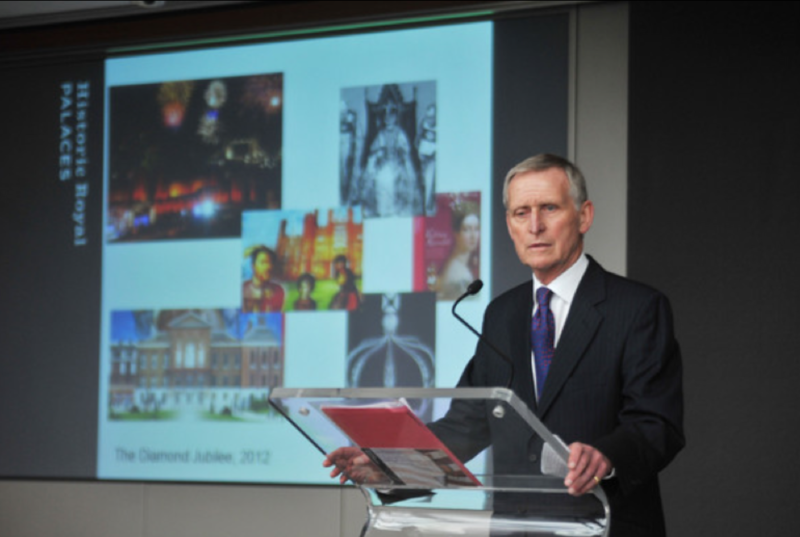
Terry Mansfield has died aged 81 after contracting coronavirus
In 1966, he moved to Queen magazine, where he stayed for three years before it was acquired by National Magazine Company in 1969.
He rose to become publisher of Harper’s and Queen, and was managing director of NatMags from 1982 and then became president and chief executive in 2002.
After retiring in 2003 he remained a consultant to Hearst, focusing on new business development and scouting young talent across the UK and in Europe.
Former Hearst chief operating officer Gilbert Maurer said: “Terry was one of the best judges and coaches of editorial talent that I have known.
“As a result, Hearst UK’s magazine titles were among the best in the nation. Talents like his are rare, and the magazine industry will miss him.”
Chris Farman, 83
Farman died on his 83rd birthday after contracting Covid-19 and being unable to be put on a ventilator because of his emphysema, according to the Banbury Guardian.
He started his career as a reporter on the West London Observer and went on to work as a journalist and historian, writing for the Guardian and The Illustrated London News among other papers, magazines and periodicals.
In 1972 he published his book General Strike, May 1926 before joining the staff of Time Life Books.
Graham Fulton, 87
Fulton spent nearly 50 years with the Perthshire Advertiser until his retirement in 1997, starting as an apprentice monotype operator before moving to the editorial staff.
He was particularly known for writing theatre reviews for the newspaper and The Stage magazine for many decades, as well as writing match reports of many St Johnstone FC games.
Jean McCormack, a former local councillor, told the Daily Record: “I have nothing but happy memories of Graham, both as a journalist and as a friend.
“Graham was always a gentleman and he was the most immaculately dressed journalist ever.
“His kindness extended to his reporting, as he never intentionally hurt or disrespected anyone.”
Doug Carnegie, 88
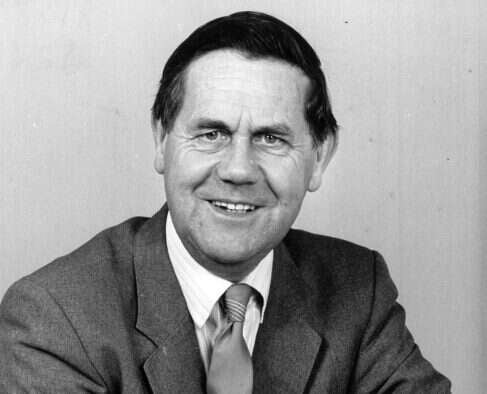
Doug Carnegie. Picture: DC Thomson
Photographer Carnegie began his career aged 17 in 1948 at DC Thomson in Dundee, joined the Daily Mail in 1961 and subsequently moved to Northern Ireland to join the staff of the Belfast Telegraph.
While there he was involved with capturing images of the conflict between republicans and unionists in the province.
He moved to Aberdeen Journals in 1971 to join the Evening Express and stayed with the newspaper until his retirement in 1996.
He was the first press photographer on the scene following a horrific gas explosion at the Royal Darroch Hotel in Cults, near Aberdeen, in October 1983 in which six people died. He won a UK provincial photographer of the year award for his images from that tragic day.
Wife Rita said many of her sympathy cards noted that Carnegie was always “really helpful” to the young photographers at Aberdeen Journals.
David Thurlow, 88
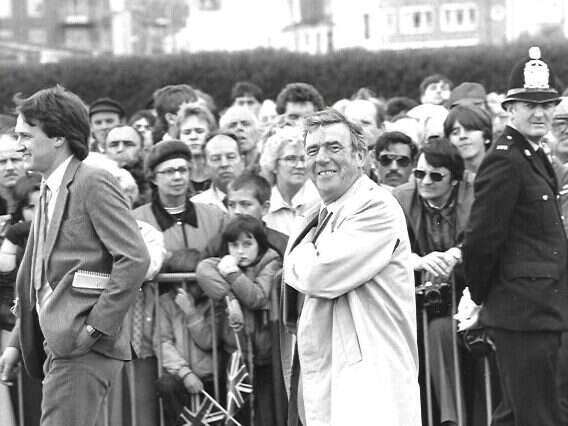
Former Daily Express reporter David Thurlow. Picture: Fiona Barton
One of the longest-serving and most respected Daily Express reporters David Thurlow died on 12 January 2021 at the age of 88.
He was in hospital recovering from surgery to pin a broken hip when he contracted Covid.
Writing about his time on the Express, Thurlow once said: “I was for 26 years part of the best reporting team on the best newspaper in the world.”
Elizabeth Proctor, 89
Proctor, who was better known to colleagues and readers at the Belfast Telegraph as Betty McCaw in the 1970s and 1980s, sadly died of Covid-19 related pneumonia in April.
Gulshan Ewing, 92
A well-known Indian journalist who interviewed the likes of Gregory Peck and Roger Moore, Ewing died at a residential care home in London in April.
She edited two popular Indian publications: women’s magazine Eve’s Weekly and film magazine Star & Style between 1966 to 1989.
According to the BBC, she has been described as “India’s most famous female editor” and holds the record for the longest interview that the country’s only female prime minister, Indira Gandhi, gave to a journalist.
Bill Mealey, 95
Mealey took photos around Merseyside for decades from the 1950s, becoming well-known as a freelance – founding the “Liverpool Pack” photographer – before landing a job as Northern picture editor at the Daily Mirror.
He nurtured close ties to the likes of Paul McCartney and Cilla Black, generating many iconic images.
Ex-Associated Newspapers group managing editor, Charles Garside, told the Liverpool Echo: “He was both an impressive figure of a man and a giant of our profession.
“He was truly a legend in his own lifetime.”
Outside the UK
Non-profit the Poynter Institute has published its own list to mark many of the known Covid-19 related deaths of journalists in the US and elsewhere across the globe.
Some of the notable names include:
- Anthony Causi, 48: New York Post sports photographer who joined the paper in 1994;
- Anick Jesdanun, 51: Long-time Associated Press technology writer;
- Maria Mercader, 54: Covered breaking news for CBS News for almost 30 years;
- Paolo Micai, 60: Italian journalist and cameraman who was covering the Covid-19 crisis on the frontline.
Independent retail newagents
Retailers play an important part in getting newspapers and magazines into their local communities. Many have also been hit by the virus as they work on the front line to keep services going.
The National Federation of Retail Newsagents has shared this list of its members and ex-members who have sadly died from Covid-19:
- Waqar Chaudhry, Milton Stores, Glasgow
- Jayant Patel, Londis, Isleworth
- Krishnasamy Chiyamalan (41), Templeton News, Dartford
- Rakesh Ramji, Food and Wine Corner, Harrow
- Raj Aggarwal (51), Spar in Wigston and Hackenthorpe
- Himanshu Patel (51), Keys Newsagents, Watford
- Keith (84) and Jean (82) MacVicar who used to run Snowdon’s Newsagents, Branston
NFRN national president Stuart Reddish said in April 2020: “Independent stores are at the heart of their communities and NFRN members, their family members and their staff are going above and beyond to provide their customers with the essentials that they need.”
Email pged@pressgazette.co.uk to point out mistakes, provide story tips or send in a letter for publication on our "Letters Page" blog
